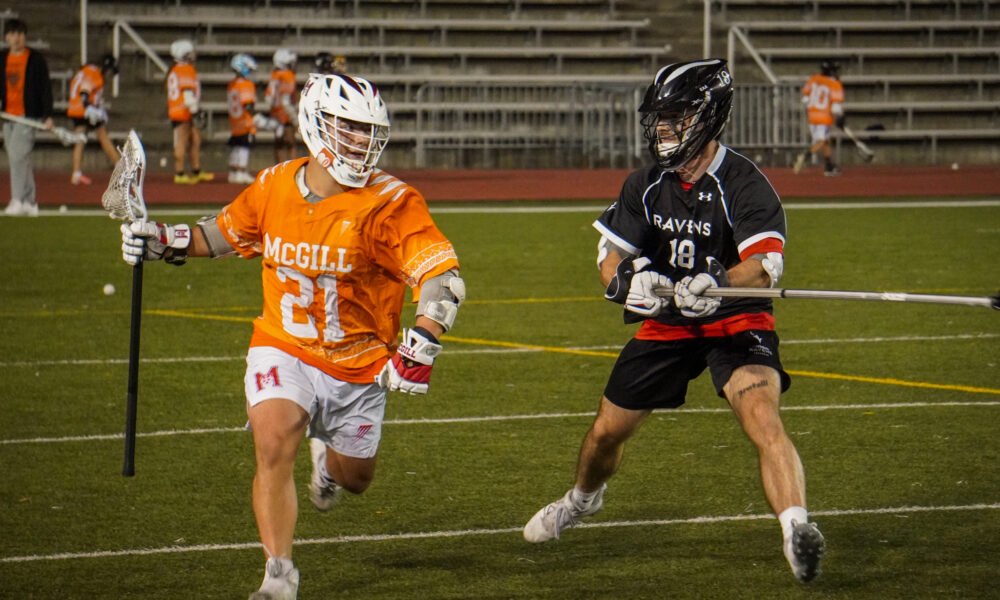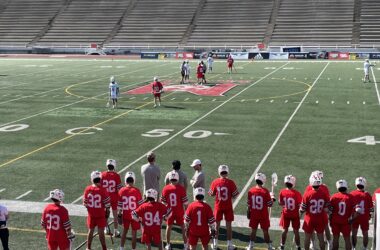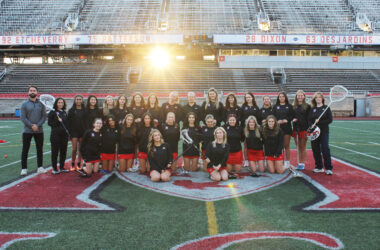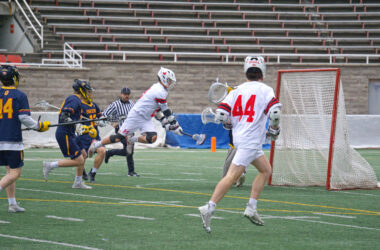Lacrosse is a sport rooted in Indigenous history and tradition, and it has maintained a significant place in Canada’s cultural tapestry since its inception. With its roots intertwined in Indigenous communities, lacrosse has long served as a unifying sport, fostering a sense of belonging and shared identity. At McGill, this spirit of unity is honoured through an annual Legacy Game played on the National Day for Truth and Reconciliation and hosted by the McGill Redbirds lacrosse team.
The origins of lacrosse can be traced back thousands of years to Indigenous communities across North America; it was played first by the Haudenosaunee. Players participated in the game, often referred to as “The Creator’s Game” or “The Medicine Game,” for spiritual reasons beyond just the physical thrill of sport; they used it as a way to settle disputes and train warriors. The Haudenosaunee believed that the lacrosse stick, a symbol of the sport, had healing properties and used it in ceremonies and rituals.
In the 17th century, French settlers and missionaries witnessed the game and began playing it with modified rules. The 1994 National Sports of Canada Act established lacrosse as one of the county’s national games, along with ice hockey. The legacy and ongoing effects of colonialism—including residential schools and forced assimilation—has had a profound impact on Indigenous peoples and their relationship to their culture and traditions. Lacrosse, however, has emerged as a powerful tool for reconciliation and resistance.
In the buildup to the third Legacy Game held at Percival Molson Memorial Stadium, Midfielder John Miraglia, U2 Arts, of the Redbirds lacrosse team sat down with The Tribune to discuss the depth of lacrosse as a cultural and spiritual sport and the importance of Truth and Reconciliation Day.
“Celebrating Truth and Reconciliation Day is important to me because it reminds me how much bigger the game of lacrosse is than any individual player or team,” Miraglia said. “It’s part of a culture and helps us spark real conversations about Truth and Reconciliation.”
Indigenous lacrosse players and teams have played a crucial role in raising awareness of issues impacting Indigenous communities and in promoting cultural pride. They have used the sport as a platform to share their stories, challenge stereotypes, and inspire younger generations. Non-Indigenous players must build these relationships by taking a more powerful role in raising awareness and promoting equity within the sport, on and off the field.
Mirgalia spoke on the energy in the locker room leading up to this year’s match.
“The Legacy Game first started in my first year at McGill, and every year there is an atmosphere around the game of importance, pride, and excitement,” he said. “We know the varsity lacrosse game is not the same as the traditional lacrosse game, but we hope to honour the sport by playing as a team and for the entire community surrounding the Legacy Game.”
Mirgalia underscored the initiative from Attacker Isaiah Cree in the establishment of the Legacy Games.
“I would be remiss if I didn’t talk about Isaiah Cree when talking about this game,” he said. “He really took the initiative to get the game started back in 2022 and set an amazing example of educating our team and honouring the origins of our sport. He scored a hat trick in that first Legacy Game, and I will always remember that as a really special moment.”
Following Truth and Reconciliation Day, it is important to recognize the role that lacrosse has played in fostering reconciliation while also acknowledging the road ahead toward a truly inclusive and equitable society. With the role of lacrosse in developing a nation’s spirit, Canadians have a duty to uphold the integrity of Indigenous peoples, their sport, and their cultures beyond designated days of commemoration. By understanding the history and cultural significance of lacrosse, non-Indigenous Canadians can deepen their respect for Indigenous traditions and work towards a brighter future for all Canadians.
The Redbirds (7–0–0) won against the Carleton Ravens (3–4–0) on Sept. 30 in the Legacy Game with a score of (8-4).








